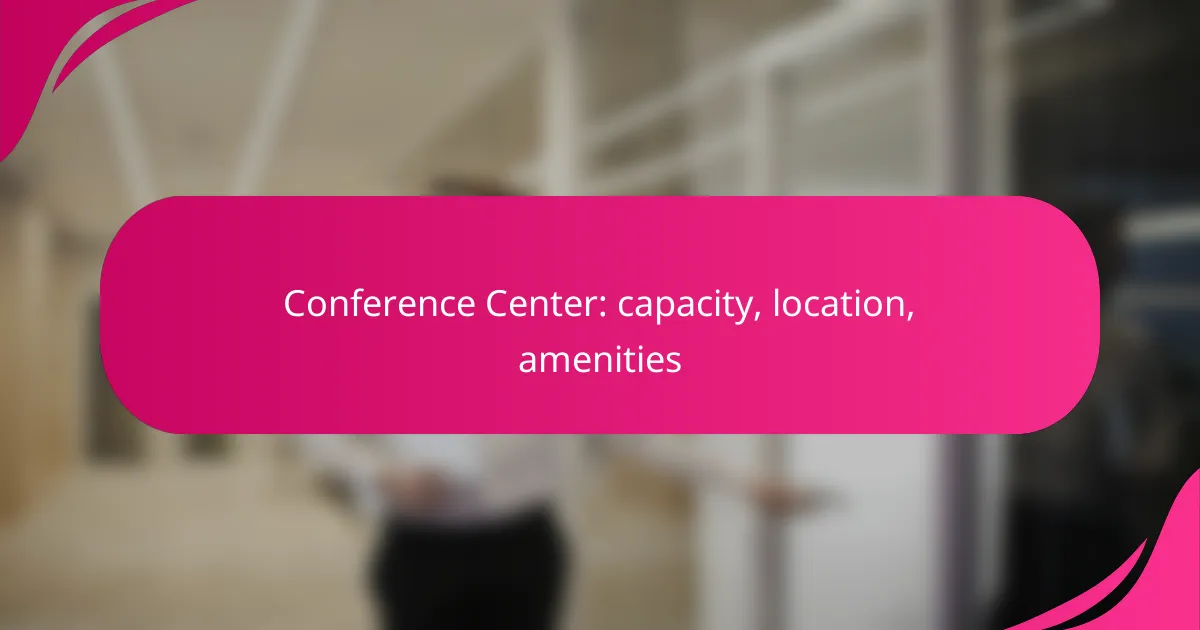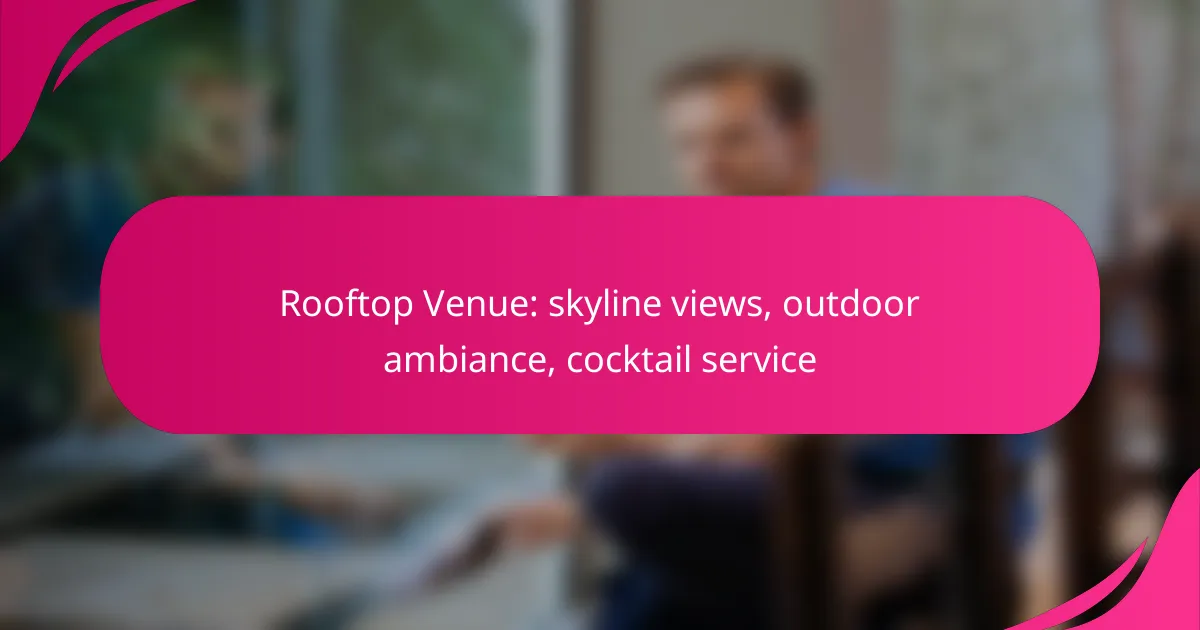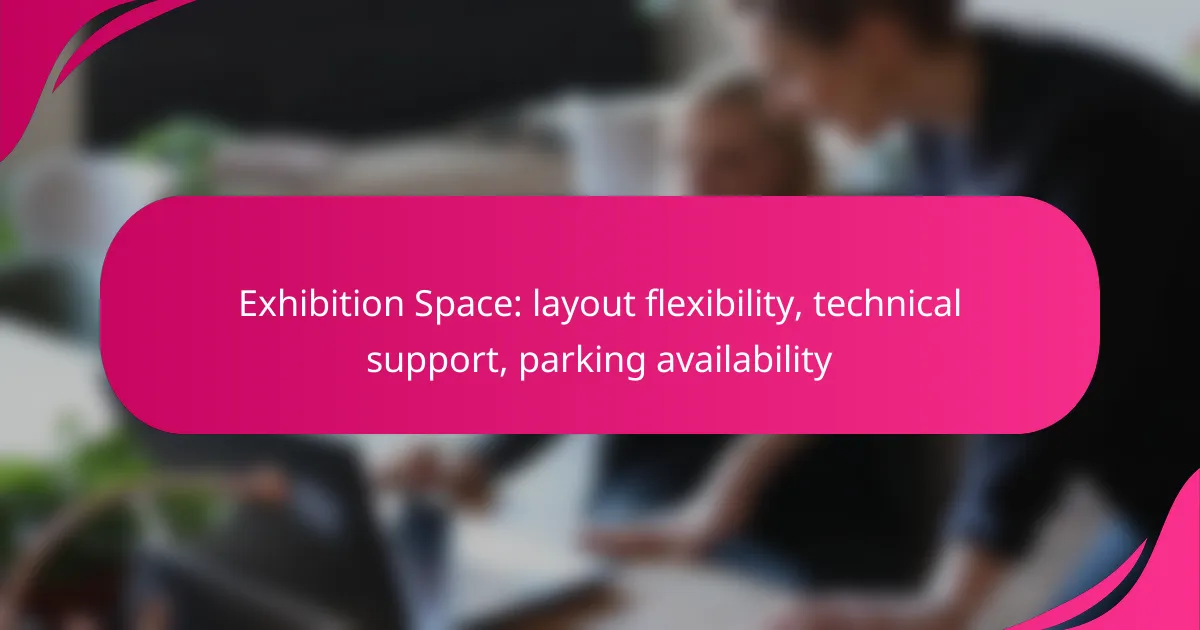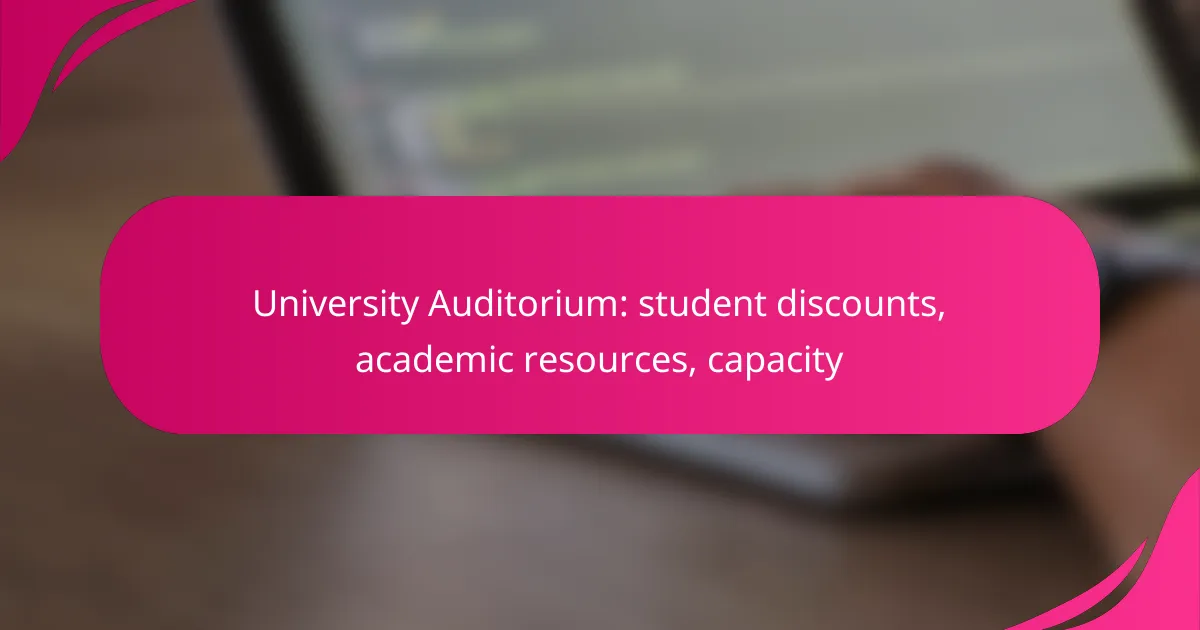Conference centers in London offer versatile spaces that can accommodate events of various sizes, from intimate meetings to large conferences. Located in major cities, these venues are equipped with essential amenities such as audio-visual technology, catering services, and high-speed internet, ensuring a seamless experience for all attendees.
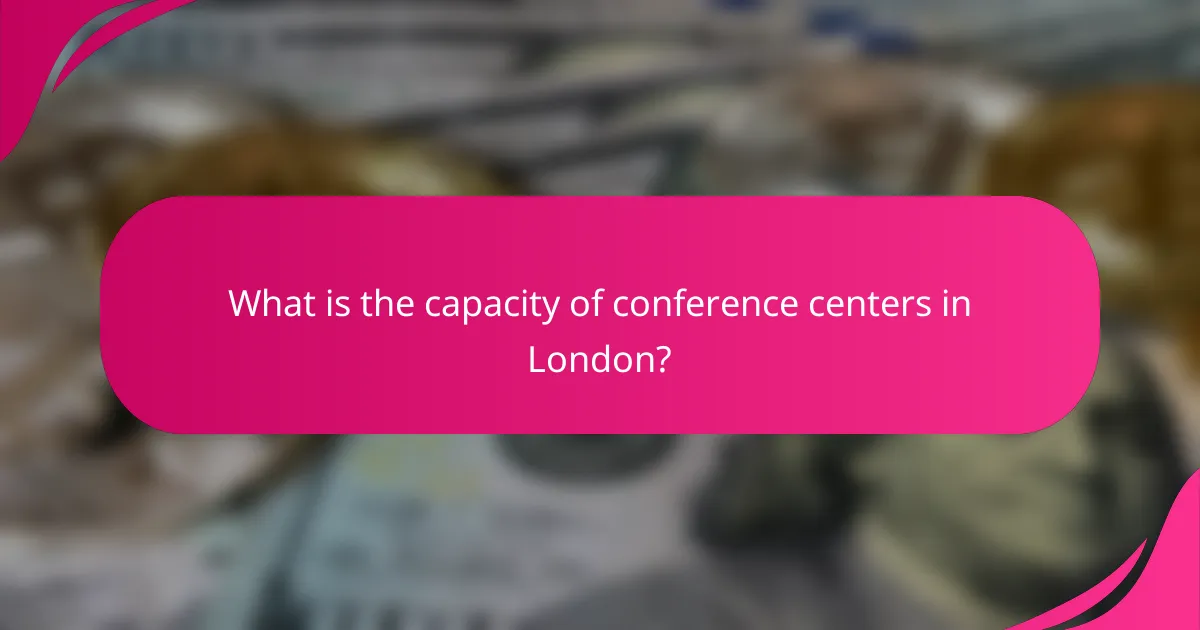
What is the capacity of conference centers in London?
Conference centers in London can accommodate a wide range of capacities, from small gatherings to large events. Typically, venues are categorized based on their guest capacity, which influences the type of events they can host and the amenities available.
Small venues (up to 100 guests)
Small conference centers in London are ideal for intimate meetings, workshops, or training sessions. These venues usually accommodate up to 100 guests and often provide a cozy atmosphere that fosters engagement and interaction.
When selecting a small venue, consider the layout options such as theater, classroom, or boardroom styles, which can affect the overall experience. Many small venues also offer essential amenities like audiovisual equipment and catering services.
Medium venues (100-500 guests)
Medium-sized conference centers can host between 100 and 500 guests, making them suitable for larger meetings, seminars, and networking events. These venues often feature multiple rooms, allowing for breakout sessions and varied event formats.
When choosing a medium venue, assess the available technology, such as high-speed internet and projection systems, as these can enhance presentations. Additionally, check for on-site catering and parking options to ensure convenience for attendees.
Large venues (500+ guests)
Large conference centers in London accommodate over 500 guests, making them perfect for conventions, trade shows, and major corporate events. These venues often have expansive spaces, including auditoriums and exhibition halls, designed to handle significant foot traffic.
For large events, consider factors such as accessibility, transportation options, and the availability of breakout rooms. It’s also essential to inquire about the venue’s experience in hosting large-scale events, as this can impact the overall success of your gathering.
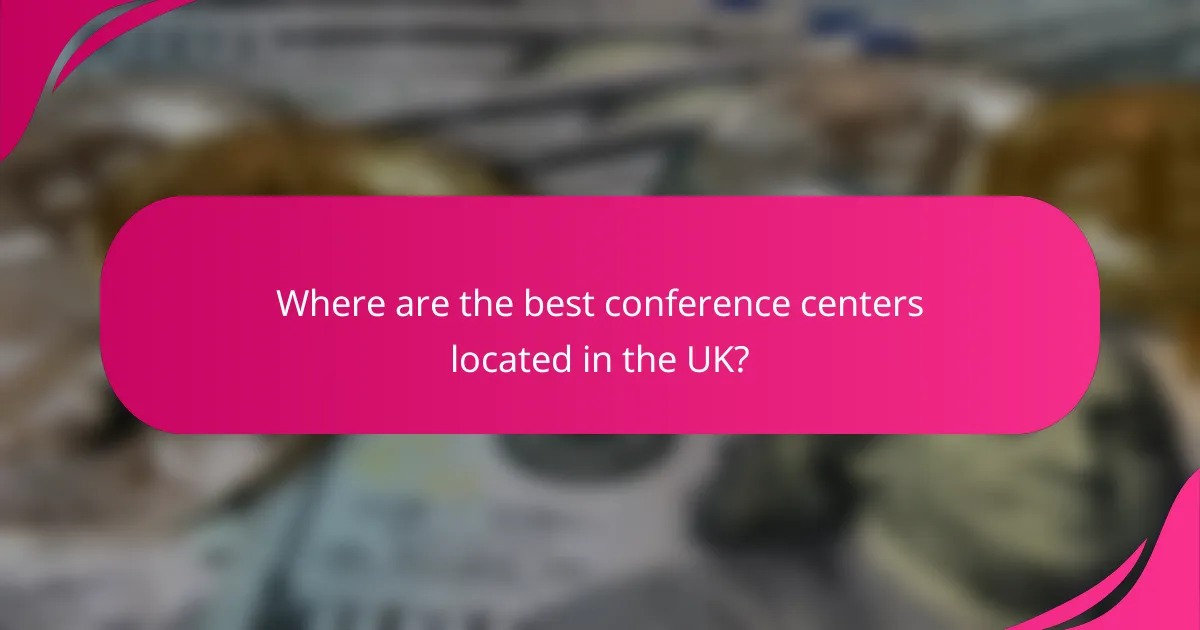
Where are the best conference centers located in the UK?
The best conference centers in the UK are primarily found in major cities, offering a range of capacities and amenities. Central London is a hub for high-profile events, while regional cities like Birmingham and Manchester provide excellent alternatives with competitive facilities.
Central London locations
Central London is home to some of the most prestigious conference centers, such as the ExCeL London and the QEII Centre. These venues typically accommodate large groups, with capacities ranging from a few hundred to several thousand attendees.
When selecting a venue in Central London, consider accessibility via public transport and nearby accommodations. High demand often leads to higher rental costs, so booking well in advance is advisable.
Regional hubs (Birmingham, Manchester)
Birmingham and Manchester are key regional hubs for conferences, offering modern facilities at more competitive prices than London. Venues like the Birmingham Conference and Events Centre and Manchester Central can host events for hundreds to thousands of participants.
These cities provide excellent transport links and a variety of local amenities, making them attractive options for both national and international events. Consider the local audience and the type of event when choosing between these locations.
Suburban venues
Suburban venues offer a quieter atmosphere and often more affordable rates compared to city centers. Locations such as the Hilton London Syon Park or the Crowne Plaza in suburban areas can host smaller gatherings effectively.
These venues typically provide ample parking and are less congested, making them ideal for focused meetings or workshops. However, ensure that they still offer necessary amenities like audio-visual equipment and catering services to meet your event’s needs.
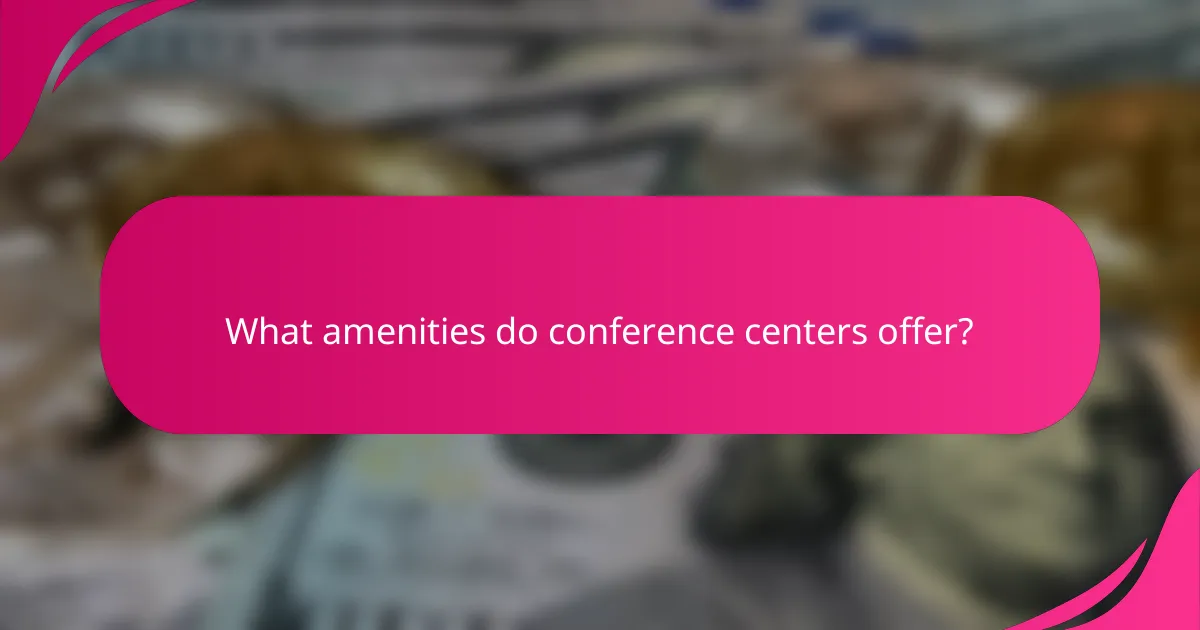
What amenities do conference centers offer?
Conference centers typically provide a range of amenities designed to facilitate meetings, events, and presentations. Key offerings include audio-visual equipment, catering services, and reliable internet access, all of which enhance the overall experience for attendees.
Audio-visual equipment
Audio-visual equipment is essential for effective presentations and communication during events. Conference centers usually offer projectors, screens, microphones, and sound systems to ensure clear audio and visual delivery. It’s advisable to confirm the availability and compatibility of equipment with your presentation materials ahead of time.
Some venues may provide technical support to assist with setup and troubleshooting, which can be invaluable during larger events. Always inquire about the types of equipment available and whether there are any additional costs associated with their use.
Catering services
Catering services are a significant aspect of conference centers, often providing meal options ranging from coffee breaks to full-course meals. Many venues offer customizable catering packages that can accommodate various dietary restrictions and preferences, ensuring all attendees are catered for.
When selecting a conference center, consider the quality and variety of catering options available. It’s beneficial to request tastings or sample menus to ensure the food meets your standards and aligns with the event’s theme.
Wi-Fi and internet access
Reliable Wi-Fi and internet access are crucial for modern conferences, allowing attendees to stay connected and access online resources. Most conference centers provide complimentary Wi-Fi, but the speed and reliability can vary, so it’s wise to check reviews or ask for specifics regarding bandwidth.
Some venues may offer dedicated internet lines for larger events or high-demand situations, which can be a worthwhile investment. Always ensure that the internet access meets the needs of your event, especially if you plan to stream presentations or conduct live polls.

How to choose the right conference center?
Choosing the right conference center involves understanding your specific needs regarding capacity, location, and available amenities. Prioritize these factors to ensure a successful event that meets your objectives and accommodates your attendees comfortably.
Assessing capacity needs
Start by determining the expected number of attendees for your event. Conference centers typically offer spaces that can accommodate anywhere from a few dozen to several thousand participants. Consider not only the maximum capacity but also the layout options, such as theater, classroom, or banquet styles, which can affect how many people can comfortably fit.
It’s wise to allow for some flexibility in your capacity needs. If your event might attract more attendees than anticipated, look for venues that can easily adjust their space or offer additional breakout rooms. Always confirm the venue’s capacity limits to avoid overcrowding issues.
Evaluating location convenience
The location of the conference center should be easily accessible for your attendees. Consider factors such as proximity to major transportation hubs, parking availability, and local accommodations. A venue located near hotels and restaurants can enhance the overall experience for participants.
Additionally, think about the surrounding area. A venue in a vibrant location may offer opportunities for networking and leisure activities, while a more remote setting might provide a quieter environment. Weigh the pros and cons of each option based on your event’s goals.
Comparing amenities and services
When comparing conference centers, evaluate the amenities and services they offer. Look for essential features like audio-visual equipment, Wi-Fi access, catering options, and on-site support staff. These can significantly impact the quality of your event.
Consider creating a checklist of must-have amenities versus nice-to-have features. For example, if you require breakout rooms or specific technology setups, ensure the venue can meet those needs. Also, inquire about any additional costs associated with these services to stay within budget.
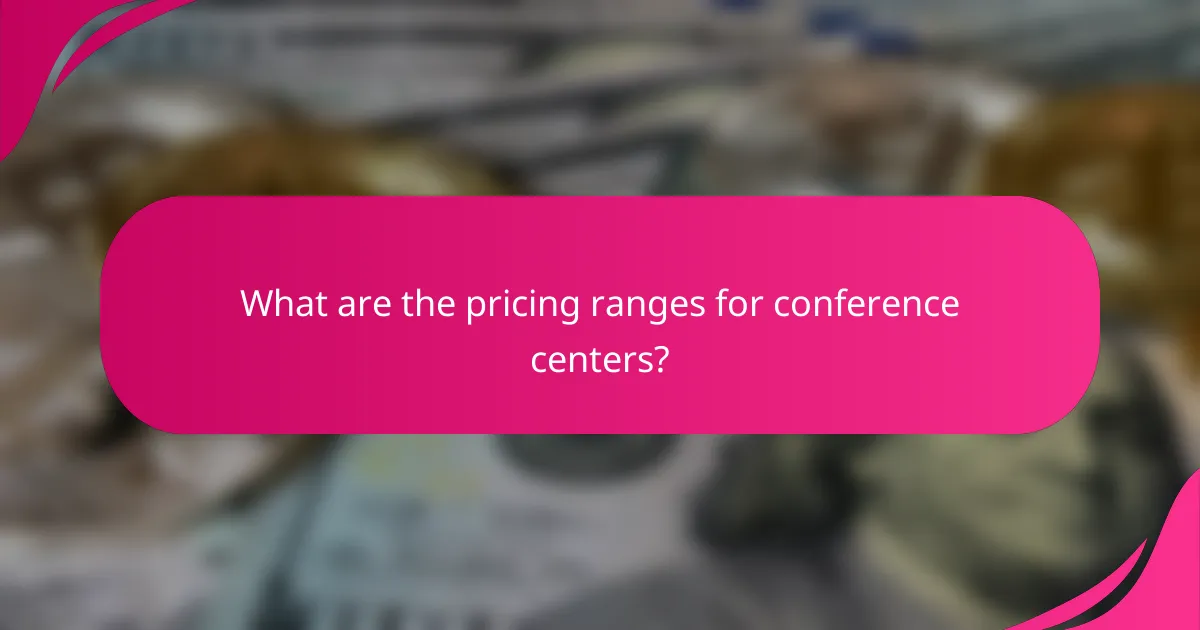
What are the pricing ranges for conference centers?
Conference center pricing varies widely based on location, amenities, and capacity. Generally, you can expect to find options ranging from budget-friendly venues to premium facilities, with costs typically spanning from a few hundred to several thousand dollars per day.
Budget-friendly options
Budget-friendly conference centers usually charge between $200 and $800 per day. These venues often provide basic amenities such as tables, chairs, and audiovisual equipment, making them suitable for smaller meetings or workshops.
When considering a budget venue, check for hidden costs like cleaning fees or equipment rentals. Look for centers that offer package deals, which can provide better value for your money.
Mid-range pricing
Mid-range conference centers typically range from $800 to $2,500 per day. These venues often include additional amenities such as catering services, enhanced audiovisual setups, and more flexible space configurations.
In this price range, you can expect better locations and more professional services. It’s advisable to compare different venues and read reviews to ensure you are getting the best experience for your budget.
Premium venues
Premium conference centers usually start at around $2,500 and can exceed $10,000 per day, depending on the location and services offered. These venues often feature state-of-the-art technology, luxurious accommodations, and dedicated event planning support.
When selecting a premium venue, consider the overall experience you want to provide for your attendees. Look for centers that offer unique features, such as scenic views or exclusive access to high-profile locations, which can enhance the appeal of your event.
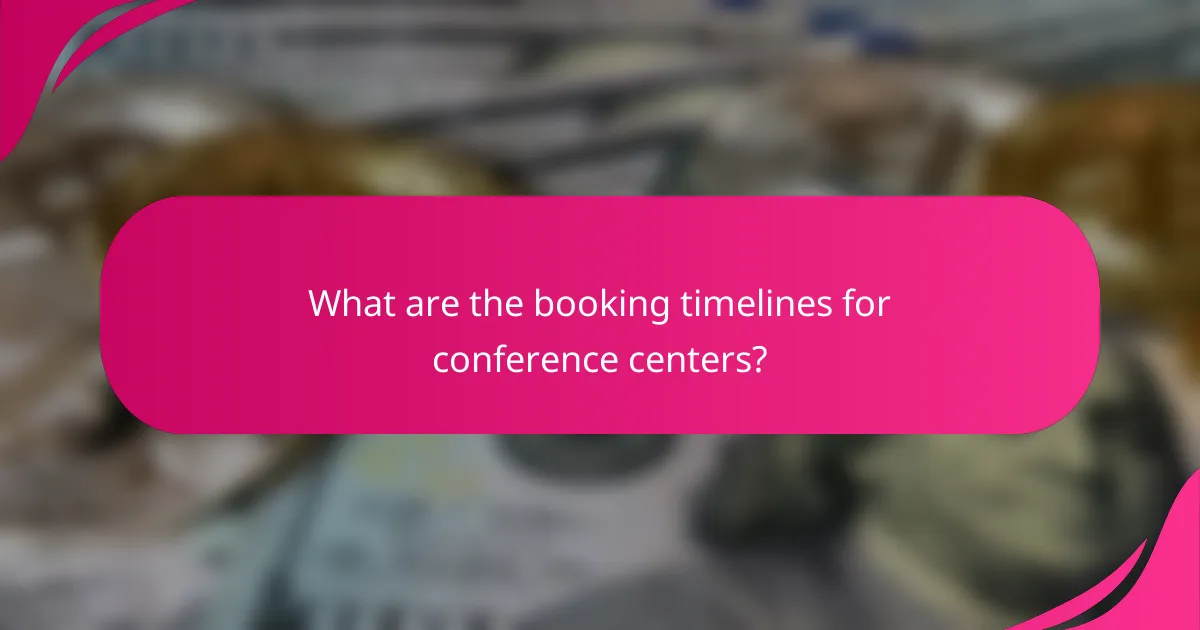
What are the booking timelines for conference centers?
Booking timelines for conference centers can vary significantly based on the venue and the time of year. Generally, it’s advisable to secure your reservation several months in advance, especially for popular locations or peak seasons.
Advance booking recommendations
To ensure availability and secure the best rates, aim to book your conference center at least three to six months in advance. This is particularly important for large events or during busy periods, such as holidays or major local events.
Consider factors such as the size of your event, the specific amenities you require, and the location’s popularity. Venues often offer better pricing for early bookings, so it can be financially beneficial to plan ahead.
Last-minute availability
While last-minute bookings are sometimes possible, they can be risky and may lead to limited options. Availability can be scarce, especially for larger venues or during peak times, and prices may be higher due to demand.
If you need to book on short notice, check with multiple venues and be flexible with your dates and requirements. Some centers may offer discounts for last-minute bookings, but this varies widely, so it’s essential to inquire directly.
